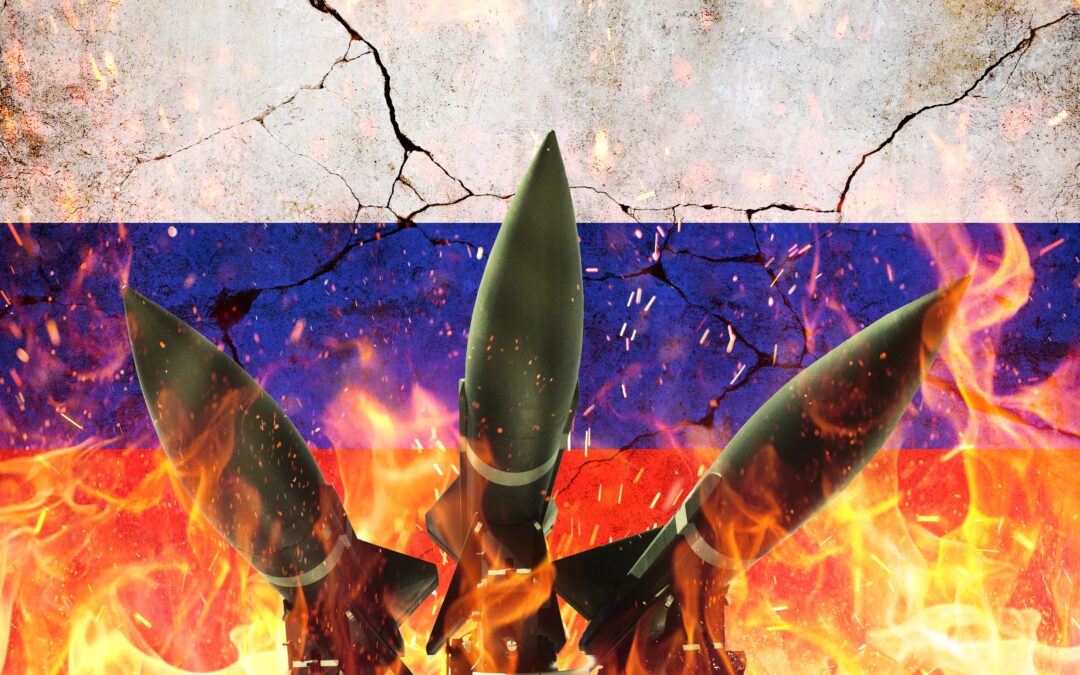Make no mistake … World War 3 is already here …
With multiple conflicts in Ukraine and the Middle East, there’s a very clear power struggle playing out on the world stage.
And as that struggle begins to wind down, we’re seeing some phenomenal investing opportunities in the aftermath.
Watch today’s video for the full story:
Transcript:
Hi, I’m Andrew Zatlin.
Welcome to Moneyball Economics, and today let’s talk World War 3 and the investing opportunity it’s creating in 2025.
Make no mistake, we have been in — and continue to be in — a World war. By any definition. We have two battlegrounds, Ukraine and Israel, but they are connected. It is one single group on one side of the table and another group on the other side of the table actively fighting each other.
Look at Ukraine. You’ve got Russia and Iran actively fighting a European country. Now, on the other side of the table, you have the European countries and the US actively fighting back, supplying armaments to Ukraine and support included into this and making it even more of a world war and less of just a European war.
We have Asian countries, we’ve got North Korea actively fighting as well on behalf of Russia. We’ve got China circling in the background, supporting Russia and then countering them, their enemies, South Korea and Japan, actively supporting Ukraine.
That’s one battleground.
The other battleground, again, some of the same players in this case, Russia and Iran with Russia leading the fight in Ukraine and Iran backing them, it’s inverted. We have Iran attacking Israel and Russia kind of backing them. In this case, Iran has their own proxy, groups of countries fighting Israel, kind of a dogpile. We’ve got Yemen, Iraq, Syria and Lebanon and Hamas, all attacking Israel. And on the other side of the table, we’ve got Western European countries, Eastern European countries, and the US supporting Israel.
This is a world war.
However, as we get into 2025, this world war is going to be slowing down and winding down.
We already see that in the Middle East, Israel won. When I say they won, look at who was fighting them versus who is able to fight them. Hamas done, Hezbollah, done Syria, overthrown, Yemen’s still there. Iran hobbling around having their own share of problems.
So that battleground is now basically settled, which brings us back to Ukraine. Not settled yet, and primarily because Russia economically isn’t yet at the point where they have to throw in the towel, probably will this year. But there’s another reason why the Ukrainian war, or I should say the Ukraine battleground of this world War hasn’t been resolved because I believe it’s been deliberately dragged out. Let me explain.
Both Israel and Ukraine have been exposed to Western drip feeding of weaponry, different reasons, different impact, different objectives, but nevertheless, the same impulse, and that’s going to drive the investing opportunity.
Yes, we have provided tens of billions of dollars of weaponry to Ukraine. We have armed them, but we’ve also limited how they can use those weapons. Oh, you can’t shoot Russia here. You can’t use this weapon there. Also, we’ve slowed down some of the weapons that we’ve delivered. Why? Well, I believe that a strategic objective of this war has been to drag it out, not to end the war, but to basically continue it so that Russia commits more and more of their enormous weaponry, stockpiles, 15,000 tanks, 40,000 artillery pieces, massive amounts of weaponry.
We are slowly forcing them to destroy their stockpiles, and then on top of that, they’re going to be economically hobbled. We’re basically buying 20 years of peace with Russia by forcing them to use up everything they have. Ukraine is the vehicle, and we’ve been giving them enough weapons to keep them in the fight, but not enough to win.
Now that impulse is driving Ukraine to create their own weaponry, right? They’ve learned that they have to be more self-determined in terms of providing their own armaments and they’re doing a great job of it. Naval unmanned vehicles, UAVs, they’re leading the fight in terms of these new type of technologies and weapons in terms of strategy and where they’re going. Fantastic.
But when it comes to investing, we should look at Israel. We should look at Israel for a couple of reasons, one of which is they’re very established when it comes to global arm sales. Ukraine is not Ukraine. We want to look at later down the road, but right now, if we want to talk opportunities in 2025, we want to talk how this World War has enabled Israeli defense industries and what it means going forward.
So there are two impulses here. One is that there’s global demand for Israeli weaponry, which has clearly proven itself, but there’s also domestic demand because Israel realizes now that they cannot rely on other countries if they need weapons. That’s a huge one, and that means Israel, which has deep pockets to pay for all their weaponry is going to do that.
And so there’s some specific winners. So again, let’s take a look at a couple of things. First of all, global demand for Israeli weapons like Iron Dome, that’s the system, the defensive system that shoots down rockets. That’s a Raytheon play because even though it’s made by Israel, it’s funneled through Raytheon. Another play would be Elbit, ESLT.
They make all those amazing UAVs that have just been enabling Israel to knock out opponents that are near and far. Now, from a domestic demand standpoint, you might consider companies, for example, that are involved in just basic parts, and one of the ways that a country can leverage Israel, micromanage them, so to speak, withhold weapons. They can also withhold parts, and so that doesn’t pop up as much. Oh, yeah, we’re going to give you the following planes, but not the parts to fix them when those parts break down.
In this case, there’s a couple of companies out there like Ashkelon, ASHO, which are now being tapped to start making replacement parts for planes and tanks. Similarly, Israel couldn’t get bombs from the US or Germany, and so now they’re going to start turning internally and create their own bombs.
There’s a company out there that’s going to be making a lot of the ammunition are ARYT, but a huge impulse here that we need to look at, not just as a reaction to going through World War 3, but a totally unique element here when it comes to Israel is that the US starting with Obama has been handing over funds of about $3.8 billion per year. Those funds were intended to be spent then on buying US military equipment. Great stuff, not cutting-edge stuff. Mind you, this is Vietnam War-era stuff. It’s sitting on the shelves in the US doing nobody any good, send it off to Israel.
That’s not exclusive, but there’s a lot of that going on. Well, guess what? In any case, all that funding goes away in just three years. In 2028 it ends. Israel is going to be asked to stand on its own feet in terms of spending billions of dollars for equipment. Do you think they’re going to buy US equipment, ammunition and so forth? No. They’re going to buy Israeli made, they’ll buy top of the line aircraft from the us, but there’s no reason to buy American bullets in American bombs anymore.
Okay, so let’s take a look at some of these companies I’ve mentioned. We’ve got ESLT. They’re pretty established. They’re traded here. They do UAVs, they do electronic systems, market cap, about $11 billion. It’s about two times their sales key point. They announced they’re going to be hiring a thousand employees. Lemme tell you something, when you’re hiring that many employees, it’s because you’ve got a lot of demand.
This is a company I really like. Take a look at their stock. It is surging. I think it’s going to surge even more. Another company, I mentioned this a minute ago, is Ashkeon. Now, this is a company that until now focused on making airplane parts, basic stuff, just the stuff that breaks down as well as stuff for tanks. Well, guess what? They’ve just been tapped. Let’s face it. If you want to expand your ability to arm yourself, you just need companies that can make stuff. Just literally, you’ve got production lines there.
And the Israeli government is tapping them and saying, we’re going to give you more and more contracts for not just these parts, but other parts as well, because you’ve proven you can make stuff and you can make it to the degree of quality that we need. They’re growing.
Take a look at their stock. Pretty tasty.
Last, again, I mentioned another company a minute ago.
This is, excuse me, got to put my glasses on. Aryt Industries is smaller. Not quite a billion in market cap, 10 times their sales. So why are they rocketing up? Well, again, they’re making fuses for missiles and bombs and they’re getting more and more contracts. They’re the only one in Israel as I understand it, who can do this. And a major part of the last year that frustrated the Israeli government was the Biden administration withheld bombs. So here’s a way to basically say, well, we’ll just make our own bombs.
This is just a game changer for this company and that’s why their stock is rocketing up. Problem is, of these companies, only Raytheon and Elbit are traded in the stock exchange over here. To get to these other ones, you have to go through an eBroker or some similar type of company that has an arrangement with the Tel Aviv stock market, but you might want to consider it.
They also pay dividends. We are in it to win it folks, Zatlin out.

Andrew Zatlin
Editor, Superforecast Trader





